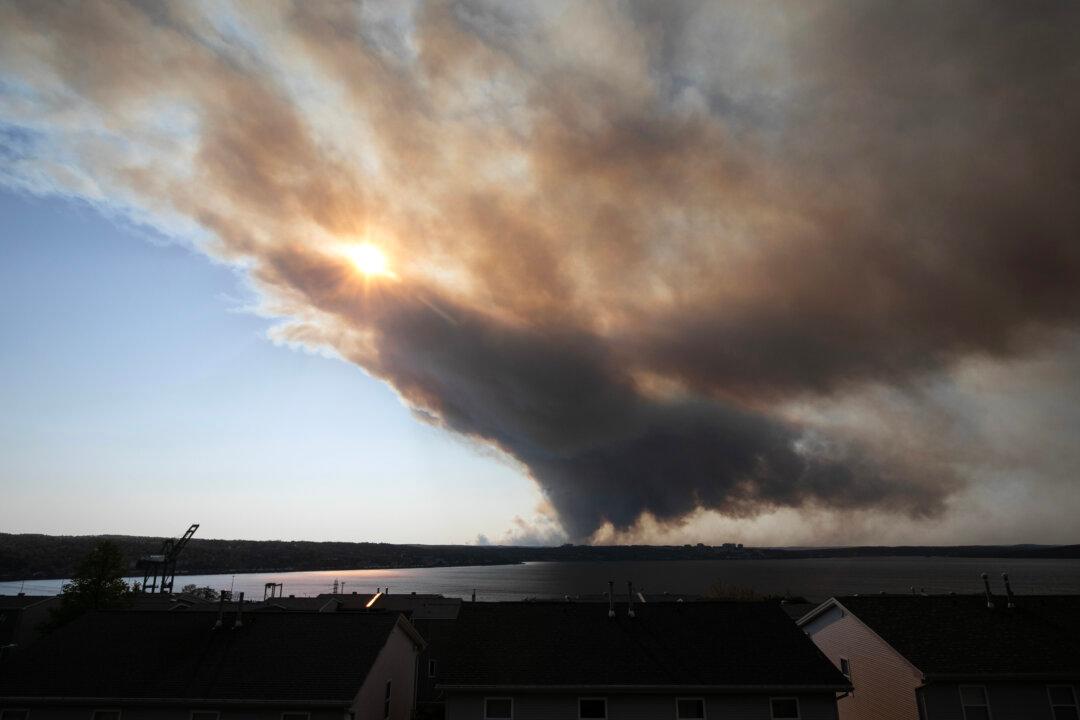Smoke from the raging wildfires in Nova Scotia, Canada, is spreading hundreds of miles to the United States and impacting cities across the northeast, according to meteorologists.
Roughly 16,000 people have been forced to flee their homes in areas surrounding Nova Scotia’s capital city, Halifax, amid strong winds that have caused local wildfires to spread rapidly and damaged multiple buildings and homes, according to the Nova Scotia Department of Natural Resources.




